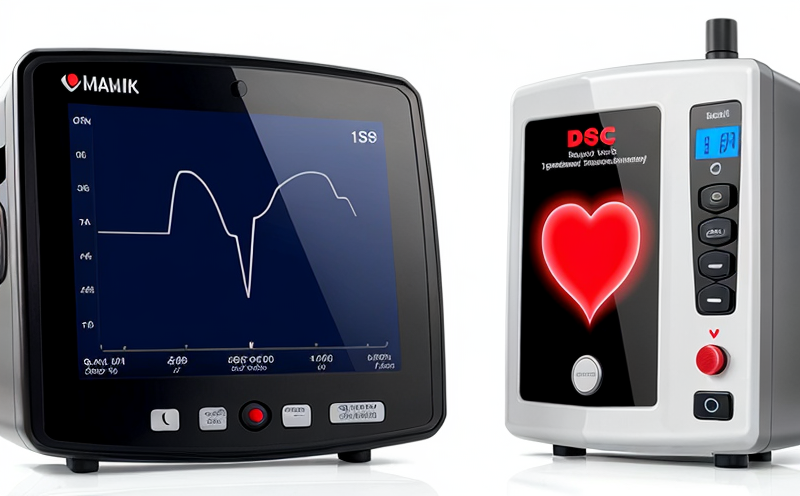ISO 14708-4 Defibrillator Charging Time Testing
The ISO 14708-4 standard is a critical component of the broader framework for testing defibrillators, ensuring their safety and performance. This particular part focuses on the charging time characteristics of defibrillators, which are essential in delivering prompt and effective shock therapy to patients experiencing cardiac arrhythmias. Charging time directly impacts the device's ability to respond efficiently during emergencies.
The standard specifies that testing must be conducted under controlled conditions to ensure accurate results. The testing procedure involves simulating various scenarios of patient impedance, which can range widely depending on the anatomical characteristics and physiological state of the individual being treated. This variability necessitates a comprehensive approach in preparing specimens for testing.
The apparatus used includes specialized test equipment designed to mimic real-world conditions as closely as possible. This equipment must meet stringent accuracy requirements outlined by ISO 14708-2, ensuring that the charging time measurements are reliable and repeatable.
The testing process itself involves several key steps. Initially, the defibrillator is connected to a standard impedance network designed to simulate different patient conditions. The device is then charged according to its operational specifications, and the charging time is measured from the moment power is applied until the capacitor reaches 90% of its nominal value.
For quality managers and compliance officers, understanding these parameters ensures that devices meet regulatory requirements set forth by global standards organizations. Compliance with ISO 14708-4 not only guarantees safety but also enhances patient trust in medical devices.
R&D engineers benefit from this testing as it provides insights into how different design iterations affect charging times. This information is invaluable for continuous improvement and innovation within the industry. For procurement teams, ensuring adherence to these standards ensures that high-quality components are sourced consistently across projects.
- International Acceptance: The ISO 14708-4 standard has been widely adopted globally, making compliance essential for manufacturers aiming to access international markets. This acceptance is a testament to the rigorous nature and reliability of the testing process.
Quality and Reliability Assurance
The quality assurance processes associated with ISO 14708-4 are designed to ensure that every defibrillator meets stringent safety and performance criteria. This includes rigorous calibration of test equipment, regular validation checks, and adherence to standardized operating procedures.
Reliability is a cornerstone of the testing process. By adhering strictly to ISO 14708-4 guidelines, manufacturers can demonstrate that their devices perform consistently across various conditions. This consistency is crucial for maintaining patient safety and trust in medical technology.
The reliability assurance measures include extensive data analysis from multiple test runs to identify any anomalies or deviations. Any findings are reported back to the design team to address potential issues promptly. This continuous feedback loop ensures that improvements are made iteratively, leading to more robust products over time.
International Acceptance and Recognition
- United States: The FDA recognizes ISO standards as a key component of its regulatory framework. Compliance with ISO 14708-4 is often required for defibrillator approval.
- European Union: Devices must comply with the EU's Medical Device Directive, which includes adherence to relevant ISO standards such as ISO 14708-4.
- Australia and New Zealand: The Joint Council for Accreditation of Australian Healthcare Organizations (JCAHO) recommends compliance with international standards like ISO 14708-4.
- India: The Indian Standards Institution (ISI) has also adopted ISO standards, making adherence to these guidelines beneficial for manufacturers seeking approval in the Indian market.
Environmental and Sustainability Contributions
While the primary focus of ISO 14708-4 is on safety and performance, there are broader implications for sustainability. By ensuring that defibrillators meet these stringent standards, manufacturers contribute to reducing healthcare waste and promoting efficient use of resources.
The testing process itself can lead to design innovations that reduce energy consumption during charging cycles. Additionally, the reliability ensured by this standard helps prevent malfunctions in the field, which could otherwise result in unnecessary replacements or recalls. These factors collectively support more sustainable practices within the medical device industry.





